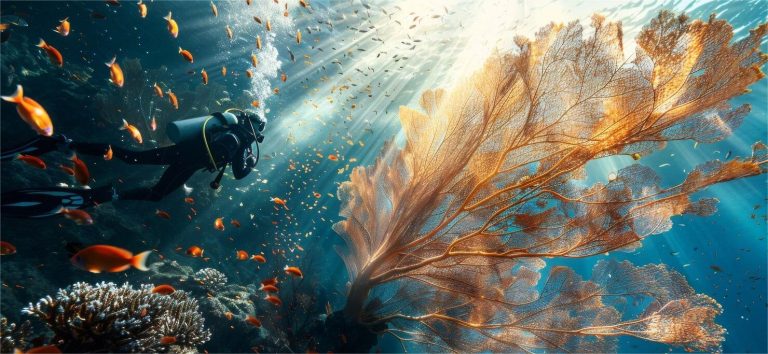Exploring the Undersea World
Introduction:
Diving is an exciting and adventurous activity that allows individuals to explore the mysterious underwater world. However, diving also requires caution and specialized knowledge. This article will introduce some useful knowledge for diving to help divers ensure safety and fully enjoy their diving experiences.
- Diving Theory:
Understanding basic diving theory is crucial before engaging in diving. This includes knowledge of how pressure and depth affect the body, the process of gas uptake and elimination, and how to plan and execute safe dives. Divers should undergo professional diving training to learn about the physics and physiology of diving, as well as the use of dive tables and dive planning.
- Diving Equipment:
Being familiar with and knowledgeable about diving equipment is essential for divers. This includes items such as dive masks, regulators, buoyancy control devices (BCDs), wetsuits, cylinders, and weight systems. Divers should know how to properly wear and use this equipment and perform necessary maintenance and inspections.
- Underwater Signals and Communication:
Effective communication is vital in the underwater environment. Divers should learn and understand commonly used underwater signals and hand gestures to communicate with their dive buddies. These signals can be used to convey emergencies, indicate directions, share discoveries, or alert other divers to be cautious.
- Diving Safety:
Divers should always prioritize safety. This includes following dive plans, adhering to diving depth and time limits, possessing first aid and emergency handling skills, and maintaining good physical health. Divers should also be knowledgeable about dive accident prevention and management and follow guidelines and best practices set by diving organizations.
- Marine Life and Environmental Conservation:
As divers, we have a responsibility to protect marine life and the environment. Understanding the behavior and habits of marine organisms, respecting marine ecosystems, and avoiding harm to marine life are crucial. Divers should adhere to the principles of not touching, collecting, or damaging marine organisms and actively participate in marine conservation activities.
Conclusion:
Diving is a fun and unforgettable activity, but it requires divers to possess necessary knowledge and skills. Understanding diving theory, being familiar with diving equipment, mastering underwater signals and communication, prioritizing diving safety, and caring for marine life and the environment are essential for becoming competent divers. By continuously learning and improving their diving knowledge, divers can ensure safer and more enjoyable experiences while exploring the underwater world.

